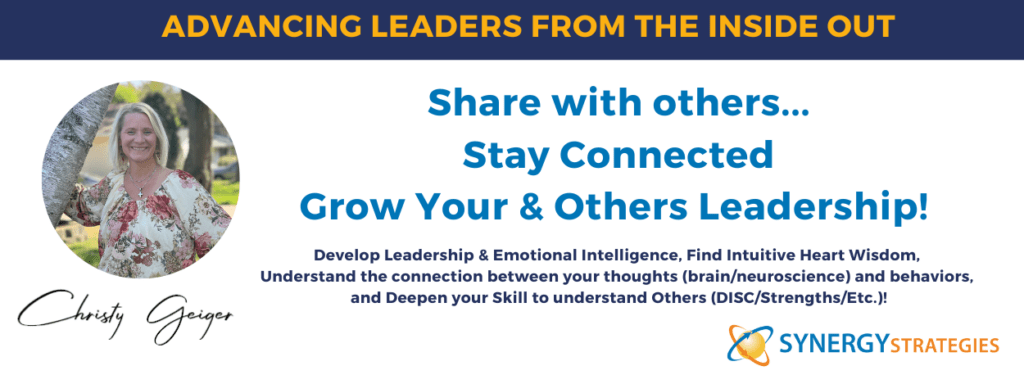In “Soundtracks,” Jon Acuff tackles a challenge we’ve all faced at some point: overthinking. This book breaks down how the thoughts we play on repeat—our soundtracks—shape how we act, lead, and respond to challenges. Acuff doesn’t just highlight the problem of overthinking; he offers a clear, practical process to retire those negative thoughts, replace them with empowering ones, and repeat the new soundtracks until they become second nature. With humor, real-life stories, and actionable advice, Acuff provides a roadmap to change how we think so we can ultimately change how we lead, grow, and thrive in life.
Soundtracks is a fresh take on managing mental habits, focusing on overcoming negative thought patterns that sabotage progress. Acuff offers a simple process to help leaders, professionals, and anyone looking to create better mental habits. The core of the book is about transforming your thought life so you can stop overthinking and start taking action, making it an excellent fit for anyone who feels stuck in indecision or doubt.
Chapter 1: The Problem of Overthinking
- Summary: Acuff opens by discussing how overthinking stops us in our tracks. We’ve all been there—playing a negative loop in our heads, letting it get in the way of decisions, actions, and growth.
- Takeaway: Recognize when you’re stuck in overthinking. Awareness is the first step toward change.
- Tip for Leaders: Help your team spot when overthinking is getting in the way of performance. If a team member is caught up in perfectionism or indecision, it might be time to coach them on letting go of the need to get it “just right.”
Chapter 2: What Is a Soundtrack?
- Summary: Acuff introduces the concept of a “soundtrack” as the thoughts you keep playing in your mind. Some are helpful, but many are just noise holding you back from reaching your potential. He emphasizes that we often don’t even realize we’ve been running on outdated, unhelpful soundtracks.
- Takeaway: Identify the soundtracks that have been running in the background of your mind. Which ones are driving your decisions? Are they positive or negative?
- Tip for Leaders: Help your team recognize the internal soundtracks influencing their confidence and decision-making. Use team meetings or 1:1s to explore what beliefs might be holding them back from taking bolder steps.
Chapter 3: Retire Your Broken Soundtracks
- Summary: This chapter focuses on retiring negative soundtracks that don’t serve us. Acuff breaks down how to challenge those limiting beliefs and let them go. He suggests that we often let these broken soundtracks run unchecked for too long.
- Takeaway: Take inventory of negative thoughts and ask, “Is this true? Is it helpful? Is it kind?” If not, retire it.
- Tip for Leaders: When leading a team, identify the limiting beliefs holding your team back, like “We’ll never hit this sales target,” and work together to retire them. Encourage a shift in mindset toward possibility and action.
Chapter 4: Replace Your Broken Soundtracks
- Summary: After retiring the old, you need to replace those broken soundtracks with better ones. This is the part where you craft new, empowering soundtracks that align with the results you want in life. Acuff emphasizes that you can reprogram your brain by consciously repeating these new thoughts.
- Takeaway: Create a new soundtrack that affirms your potential, e.g., “I’m equipped for this challenge.” Repeat it until it becomes automatic.
- Tip for Leaders: Work with your team to develop soundtracks that promote a winning mindset, such as “We have everything we need to succeed” or “We’ve faced challenges before and come out stronger.”
Chapter 5: Repeat Your New Soundtracks
- Summary: Repetition is key. Acuff explains that new soundtracks become strong when repeated consistently. He talks about neuroplasticity—the brain’s ability to form new habits through repetition—and encourages readers to make their new soundtracks stick by practicing them daily.
- Takeaway: Repetition makes new thoughts automatic. The more you say it, the more you believe it.
- Tip for Leaders: Reinforce positive soundtracks in your team by making affirmations part of your team culture. Have your team share wins regularly to keep reinforcing that success is a part of their identity.
Chapter 6: How to Make Your Soundtracks More Powerful
- Summary: Acuff introduces the idea of amplifying your soundtracks by backing them up with action. Positive soundtracks are more effective when you align your behavior with them. You can also borrow empowering soundtracks from others who have succeeded in areas you want to grow.
- Takeaway: Soundtracks gain strength when paired with action. Take steps, even small ones, that reinforce the soundtracks you want to live by.
- Tip for Leaders: Encourage your team to back up new soundtracks with specific actions. For example, if they’re adopting the soundtrack “I am prepared for success,” they can pair that with small wins like preparing thoroughly for client meetings or making proactive sales calls.
Chapter 7: Borrowing Soundtracks
- Summary: Sometimes, you can’t create a new soundtrack on your own, so Acuff suggests borrowing soundtracks from others who have been where you are. This chapter highlights how role models and mentors can inspire new ways of thinking.
- Takeaway: Look at those you admire and “borrow” their soundtracks until they become your own. Surround yourself with people who are where you want to be.
- Tip for Leaders: Share success stories within your organization. When someone on your team adopts a positive mindset and sees results, amplify it. Let others borrow that winning mindset.
Chapter 8: Build a Playlist
- Summary: Acuff compares your mental soundtracks to a playlist, encouraging you to be intentional about the soundtracks you choose for different situations. Some soundtracks may be about confidence, others about resilience—build a mental playlist for success.
- Takeaway: Create a go-to set of soundtracks for when you face challenges, when you need to motivate yourself, and when you’re stepping into new opportunities.
- Tip for Leaders: Work with your team to create soundtracks that apply to key moments in your business—like launching new campaigns, closing deals, or handling rejection.
Chapter 9: Practice Makes Permanent
- Summary: Practice doesn’t just make perfect—it makes permanent. Acuff emphasizes that consistent effort in replacing and repeating soundtracks is the key to long-term success. This chapter is about building mental resilience over time.
- Takeaway: Keep at it. Consistency is more important than perfection when it comes to shifting your mental habits.
- Tip for Leaders: Build habits in your team that reinforce positive soundtracks daily. Whether it’s team check-ins, regular goal-setting, or celebrating successes, create rhythms that make the positive thoughts stick.
Key Concepts:
- Overthinking: This mental loop of doubt or indecision can stop you in your tracks. Identifying it is the first step.
- Soundtracks: These are the repeating thoughts in your head. Some help you; some hurt you. It’s your job to recognize which ones are which.
- Retire, Replace, Repeat: The 3-step process to change your mindset:
- Retire negative soundtracks.
- Replace them with better, empowering thoughts.
- Repeat them until they’re second nature.
- Borrowing Soundtracks: If you struggle to create new soundtracks, look at role models or mentors who have walked the path you’re on.
- Action Reinforces Belief: Pair your new soundtracks with action to strengthen their impact.
Actions to Apply:
- Retire Negative Soundtracks: Sit down and list the common negative thoughts you have about yourself, your leadership, or your sales process. Identify which ones are no longer serving you and commit to retiring them.
- Replace with Empowering Thoughts: Create a set of soundtracks that support your goals. For instance, “I am capable of leading this team to success” or “We can grow even in challenging markets.”
- Repetition is Key: Make these new soundtracks part of your daily routine. Say them out loud before big meetings or write them down each morning.
- Back Soundtracks with Action: Set small, achievable goals to reinforce these new thoughts. For example, if your new soundtrack is “I can handle challenging clients,” take immediate action by preparing for a difficult sales call.
- Share Soundtracks with Your Team: Introduce this concept to your team, helping them identify their own soundtracks and giving them tools to retire unhelpful ones.
Some Quotes:
- “Your thoughts are a soundtrack for your life.”
- “Retire the broken soundtracks. Replace them with better ones. Repeat them until they become as automatic as the old ones.”
- “Repetition turns new thoughts into powerful beliefs.”
Leaders often face mental barriers like self-doubt, imposter syndrome, or fear of failure. Soundtracks teaches how to identify those mental loops and replace them with soundtracks that empower and drive success. As a leader, embracing positive soundtracks will help you stay focused and resilient while modeling this approach to your team creates a culture of growth and adaptability.
Grab this book and read it if you are a leader looking to shift your mindset and build confidence, a professional stuck in a cycle of overthinking and wanting practical tools to break out of it, or a coach, counselor, or consultant who wants to help your clients or teams move past limiting beliefs and take bold action. Highly Recommended!
10 Habits for a Fall Reset: How High-Performing Leaders Regain Traction






